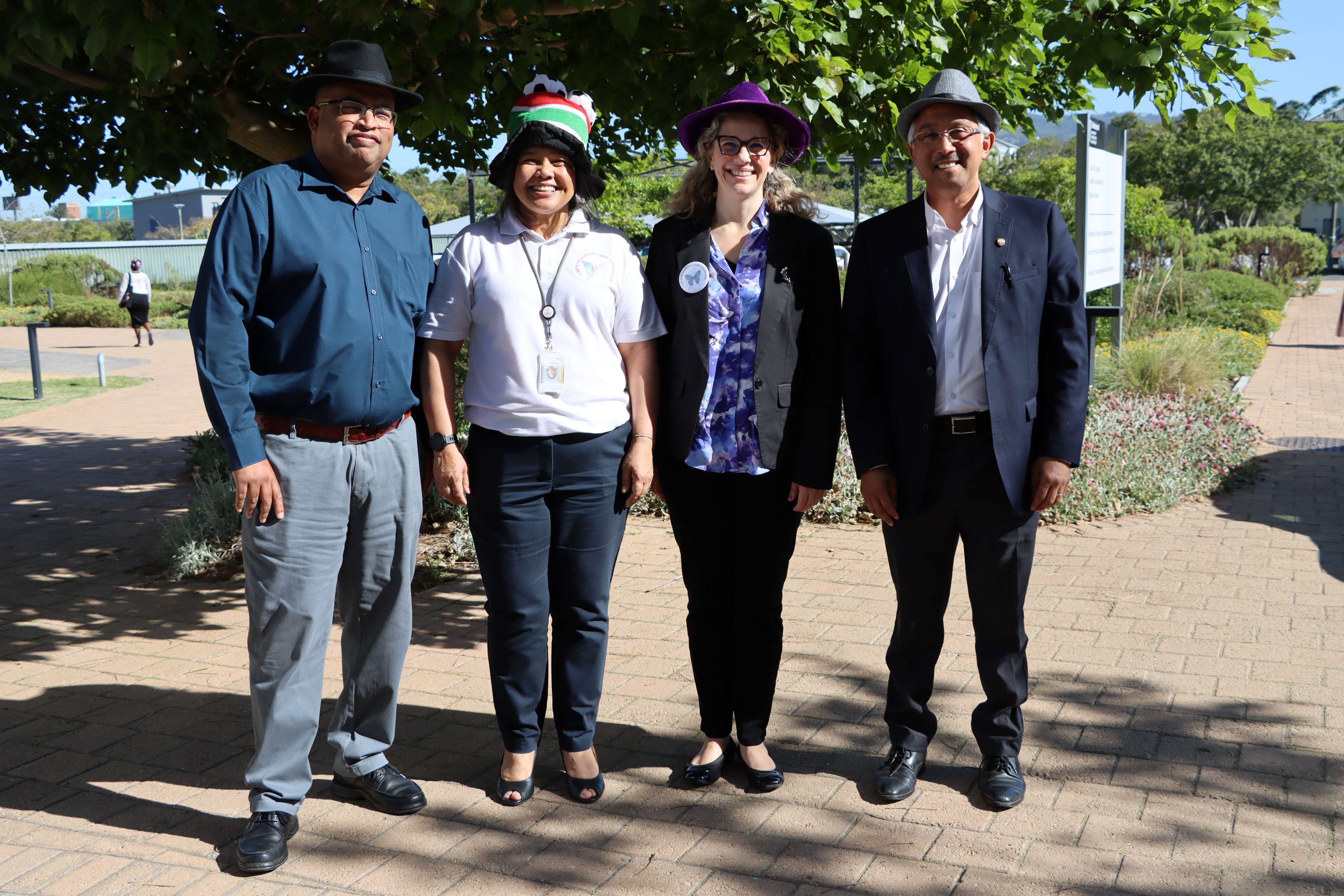NATIONAL NEWS - A provincial event held at Stellenbosch University’s Faculty of Medicine and Health Sciences on 17 October 2025 brought together policymakers, healthcare workers and palliative care leaders from across the Western Cape.
Hosted by the Western Cape Department of Health and Wellness (WCDHW), the event formed part of the province’s extended observance of World Hospice and Palliative Care Day, which was marked globally on 11 October.
Dr Michael Phillips, Director of the Northern-Tygerberg Substructure, said the day highlights hope, humanity and recognises clinicians, patients and their shared commitment to a health system where palliative care is not an option, but an integral part of care.
Dr Saadiq Karriem, the Department’s Chief Operating Officer, despite the challenges, diagnoses, and fears, all the roeplayers honour the shared purpose and commitment that unite us in this work.
“Today, we honour the dedicated staff who provide care, the policymakers who create an enabling environment, and the patients who walk this path with us.”
Western Cape Minister of Health, Mireille Wenger, emphasised that palliative care is not only end-of-life care, while speaking on the importance of access to palliative care.
“In South Africa, it is estimated that only about 18% of patients in need of palliative care have access to it. For children, that figure is even lower. I believe it is our shared ethical duty as health professionals, policymakers and partners to make sure palliative care is assessable to all people who need it, wherever they are.”
What is palliative care and why it matters
Palliative care focuses on improving quality of life for people with life-limiting or serious illness by helping them feel comfortable, supported, and cared for. It involves the early identification and management of pain and physical symptoms, as well as addressing emotional, psychosocial, and spiritual needs to ensure holistic wellbeing for both patients and their families.
“Palliative care is not end of life care, it’s about ensuring comfort, dignity, and connection for people experiencing life limiting illnesses, throughout their health journey,” says Dr Nousheena Firfirey, from the Western Cape Department of Health and Wellness.
“It’s a planned, person-centred, and compassionate approach that focuses on the quality of life of the patient, while also supporting the families and caregivers who walk this journey alongside their loved ones.” She adds: “When palliative care is misunderstood, patients may not receive the support they need, and families may feel isolated. By speaking openly and integrating palliative care into health services, we can change perceptions and ensure that everyone has access to the support they deserve.”
In the Western Cape, healthcare workers across all levels, from hospitals to clinics and community teams, work together to provide compassionate, integrated palliative care for people living with life-limiting illnesses. This includes serious or complex health conditions such as organ failure, cancer, drug-resistant TB, advanced HIV, and neurological or degenerative diseases like Parkinson’s, dementia, and multiple sclerosis.
The Department of Health and Wellness continues to build capacity through training, teamwork, and collaboration to ensure that palliative care is delivered with skill, empathy, and respect for each person’s dignity and quality of life.
Who can benefit from palliative care?
Palliative care is available to children and adults with chronic illnesses or disabilities who experience:
- Persistent symptoms despite treatment
- Difficulty with daily activities
- Increased dependence on others
- Significant weight loss or decline in health
- Caregivers who need support
It is provided in homes, clinics, hospitals, hospices, or specialised facilities, depending on the patient’s needs. Care is delivered by a multidisciplinary team that may include doctors, nurses, social workers, community healthcare workers, counsellors, occupational and physiotherapists, as well as spiritual care providers.
Palliative care vs hospice care
- Palliative care can begin at any stage of illness and is not limited to end-of-life situations.
- Hospice care is typically offered in the advanced stages of illness and is often provided by community-based organisations contracted by the Department.
Support offered includes:
- Pain and symptom management
- Emotional, social and spiritual support for patients and families
- Bereavement assistance
- Practical support, such as free equipment loans (e.g. wheelchairs) through local clinics

Breaking the stigma
There is a common misconception that palliative care means giving up hope. In fact, it promotes life and regards dying as a natural process. It helps patients live as actively and meaningfully as possible, while supporting families and caregivers through the journey.
How to access palliative care
Speak to a healthcare worker at your local clinic or hospital to learn more about palliative care options available to you or your loved one. You are not alone, let us walk this road with you.
Learn more about palliative care:
Links to related organisations:?
- Paedspal Paediatric Palliative Care? ?
- PalPrac - The Association of Palliative Care Practitioners of SA?
- PatchSA - Palliative Care for Children South Africa?
- APCC - Association of Palliative Care Centres of South Africa?
‘We bring you the latest Garden Route, Hessequa, Karoo news’
















